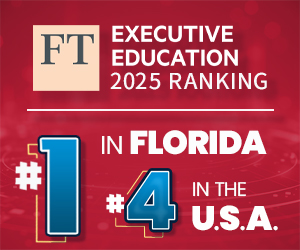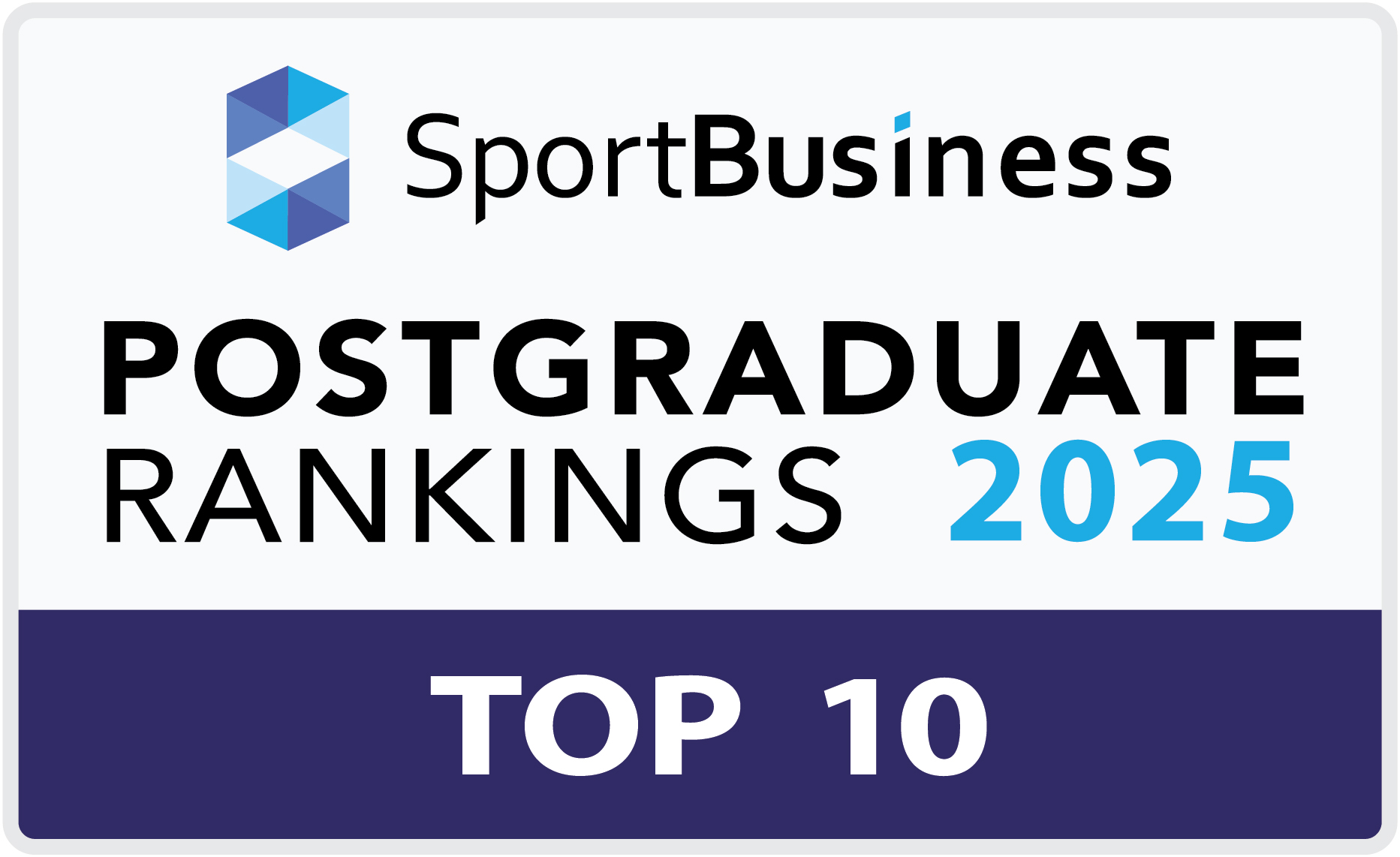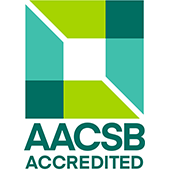Traditional MBA Curriculum
Traditional MBA Program Sheet
FAU’s Traditional MBA course curriculum provides a strong, comprehensive foundation in business management and exposure to a broad array of success-proven managerial skills and strategies.
The 23-month Traditional MBA is 43 - 55 total credits:
- 43 credits core courses
- Up to 12 credits may be waived for students with equivalent undergraduate business coursework
- 12 credits electives
Traditional MBA Core Curriculum: 31-43 Credits
The MBA core curriculum is designed to provide a strong, comprehensive foundation in business management.
| Course | Course Description | Credits/Semester Taken |
|
Business Law and Applied Ethics (BUL 6455) |
Presents legal and ethical issues that arise in business. Emphasizes contractual and employment issues and the ethical concerns related to them. Students develop skills and tools to lead or manage a business while creating and maintaining an ethical environment. |
1.5 credits / Semester 1
|
| Advanced Managerial Economics (ECP 6705) | Analysis of business decisions in the pursuit of the firm's goals constrained by scarce resources with emphasis on the applications of microeconomic theories combined with recent advances in information economics. | 1.5 credits / Semester 1 |
| Communication Strategies for Business Professionals (GEB 6215) | Writing and speaking strategies linked to (1) critical thinking for problem analysis/solution and persuasive proposals and (2) research for decision-making. Students submit papers and presentations from core courses. | 3 credits / Semester 1 |
| Contemporary Issues in Industry/Executive Forum (GEB 6931) (1 credit) |
Presentations by and seminar-like interaction with entrepreneurs and executives focusing on the practical nature of business development. Students and executives discuss current challenges facing business and industry today and consider alternative ways of meeting these challenges. | 1 credit / First Available Semester |
| *Financial Accounting Concepts (ACG 6027) | Principles applicable to the accounting cycle, asset valuation, income determination, financial reporting, basic business taxes, and owner's equity. Available only to graduate students lacking an undergraduate course in accounting. |
3 credits / Semester 2 Students should prioritize completing foundation courses. Courses are not available during the summer semester. |
| *Marketing Functions and Processes (MAR 6055) | A conceptual treatment of the basic processes influencing the design, implementation, and management of the marketing function. Open only to graduate students lacking an undergraduate course in marketing. |
3 credits Students should prioritize completing foundation courses. Courses are not available during the summer semester. |
| *Data Analysis for Managers (QMB 6603) | Introduction to statistical analysis of data using interactive computing, including topics such as randomness, cross-sectional regression, auto-regression, experiments versus observational studies, causal interference, and analysis of univariate and multiple time series. |
3 credits Students should prioritize completing foundation courses. Courses are not available during the summer semester. |
| Leadership and Organizations (MAN 6296) | Foundation for understanding leadership in organizations. Topics include leadership in relation to motivation, communication, performance, group dynamics and organizational change. | 3 credits / Semester 2 |
| *Financial Management (FIN 6406) |
Tools and applications of corporate financial analysis and forecasting, investment policy, financing policy and working capital policy. |
3 credits Students should prioritize completing foundation courses. Courses are not available during the summer semester. |
| Global Environment of Management (MAN 6937) |
Topics affecting global managers: regulation and deregulation, technology, ecology, national industrial policy, social responsibility and ethical reasoning, human resource issues, the globalization of economic conditions, security issues, and environmentalism. | 3 credits |
| Advanced Analysis of Accounting Data (ACG 6315) |
Analysis of financial and managerial accounting data for users of those data. Meant to provide broad exposure to accounting to graduate students who are not pursuing accounting degrees and who do not have accounting backgrounds. | 3 credits |
| Advanced Marketing Management (MAR 6815) | Coverage of how marketing managers research, communicate, price, and distribute product and service offerings to profitably satisfy targeted customer segments in a dynamically changing global environment. | 3 credits |
| Advanced Financial Management (FIN 6806) | Theory and practice of financial planning and management. Emphasizes the capital structure of business enterprise, its cost of capital and its evaluations. Applications of quantitative methods to capital theory. | 3 credits |
| Management of Information Systems and Technology (ISM 6026) |
Evaluations of information systems: types, development and use. Emphasis is on understanding information systems in the context of managerial use, problems, and opportunities. | 3 credits |
| Operations Management (MAN 6501) |
Introduction to major managerial problems and decision processes of operations management. Includes topics such as: forecasting, design or production systems, simulation, modeling, using decision trees and PERT, analysis of univariate and multiple time series, quality control, just-in-time systems, and decision support systems. | 3 credits |
| Global Business Strategy (MAN 6721) | Strategy, its formulation, articulation, and implementation. Review of current theory and practices and case studies as well as the role and responsibility of the general manager in managing the business enterprise. | 3 credits |
*Course can be waived if student has taken undergraduate course equivalent
Electives Courses: 12 Credits
Master of Business Administration students can tailor their MBA experience by choosing four courses (12 credits) from more than 70 business elective courses. The four elective courses can be taken across different business areas leading to a "general" MBA degree. It is important that you choose courses that will assist you in reaching your academic and future career goals. Academic advising is available for students who would like guidance through the process.
Curriculum information for students admitted before spring 2014 can be found under "Masters & Ph.D.: Current Students".
















